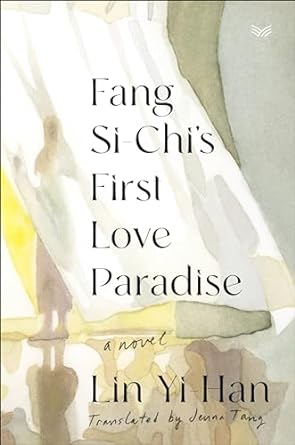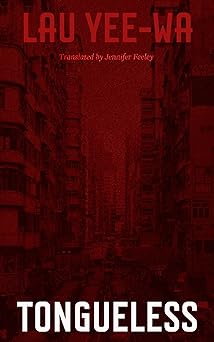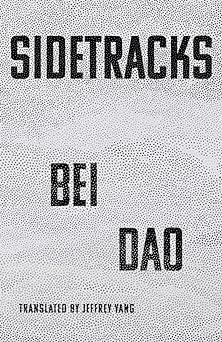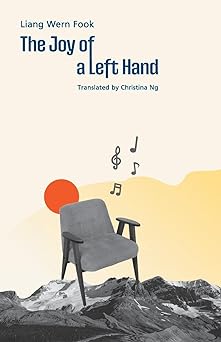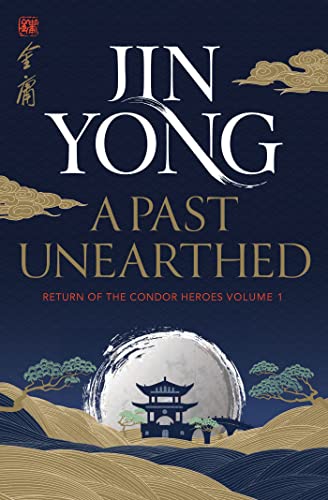Trauma’s roots run deep. They grow unnoticed; they surface in unexpected places, and branch in unpredictable ways. That is what makes trauma such a reliable source of affecting writing about the human condition, in Chinese as in English. Chinese literature in particular has a long-standing relationship with trauma, from exiled dynastic officials to the “scar literature” of the Cultural Revolution. And that has continued in contemporary literature today, across the diaspora.
The sheer range of subjects and styles covered by the five books recommended below is testament to the diversity, and universality, of trauma writing. They run the gamut. There is a tale of pedophilia and sexual assault inspired by real events; a searing portrait of contemporary Hong Kong under threat; a poet’s account reconstituted using language that he reclaimed after a stroke; and a flash fiction collection that makes satire of everyday cultural and economic violences. And if you’re exhausted by the end of that, the fifth book is a bit of lighter relief so it’s not all heavy going. Strap in: these books make for a bumpy ride.
Fang Si-Chi’s First Love Paradise
A Novel
This novel by Taiwanese writer Lin Yi-Han, inspired by true events, boosted Taiwan’s #MeToo movement and has sold over a million copies worldwide. It tells the story of two precocious barely-teenagers, Fang Si-Chi and Liu Yi-Ting. Daughters of upper-class families, they enjoy the privilege and comforts of life in an upscale apartment complex in Kaohsiung. A teacher, Mr. Lee, takes a liking to the preternaturally sharp Si-Chi, and becomes bent on making her the next conquest to brag about to his perverted friends. Si-Chi’s parents readily accept his offer to privately tutor her. Like that, the power structures that once protected Si-Chi are upended, trapping her in a cage of abuse. Losing her best friend Yi-Ting to jealousy and mistrust, Si-Chi’s only resort is literature, to which she turns for escape, and as a way of processing the violence wrought upon her. That such awful acts as those detailed in the novel are described through beautiful literary allusions (as rendered in Jenna Tang’s empathetic translation) only makes Mr. Lee’s twisted behavior a more shocking read.
Tongueless
In this psychological thriller, the protagonist Wai is a new-hire at a Hong Kong secondary school where she is ostracized by her fashion-forward colleague Ling. When Wai learns that Mandarin will soon become the language of Chinese instruction, in place of Cantonese, she desperately throws herself into studying. But her post-it notes and insistent self-immersion cannot save her from crumbling under the pressure of her unmanageable workload, low pay and job instability. A chilling exploration of language hegemony and social class in the cut-throat world of modern-day Hong Kong (skillfully negotiated by translator Jennifer Feeley), Tongueless will grab you by the white-collar and not let go until the tension reaches breaking point. Local author Lau Yee-Wa reveals the gruesome climax of the novel on page one (“Wai had died by suicide on the first day of summer break”) and it doesn’t let up from there. Every mention of the fatal “electric drill” thereafter made my teeth feel numb, and the psychic horrors that await readers later on in this debut novel are just as unsettling.
Sidetracks
Bei Dao, a celebrated Chinese dissident poet who came to prominence in the wake of the Cultural Revolution, wrote poetry that resonated with readers around the globe. In 2012 he suffered a stroke and lost most of his language faculties. Stripped of his familiar means of artistic expression, he started to paint. It is likely no coincidence that the poems in Sidetracks, his first collection in 15 years, resemble that medium of his recovery. They are ink-dot paintings, full of imagery that contributes to a greater picture: “protest banners lice empty plastic bottles”; “negotiations and farmers markets”; “tears […] down the face of a young girl.” As with stereograms (magic-eye art), if we look at them long enough, a three-dimensional view of Bei Dao’s itinerant life in exile comes in and out of focus. From Beijing to West Berlin, Copenhagen to Hong Kong, the narrative thrust of this collection zigzags through his lifetime, while the 34 cantos themselves (excerpted here and here in Jeffrey Yang’s propulsive translation) are a nebula of worldly experience.
The Joy of a Left Hand
What did the director say to the actor playing Confucius? What did the jujube tree think of Lu Xun? How much is rent for an apartment when the real-estate for urns runs at a premium? These are not questions you’re likely to want answers to. Or jokes with obvious punchlines. But you’ll be charmed when you know where they lead. This collection of 53 short stories and micro-fictions, the debut of Singaporean writer Liang Wern Fook, brings together the absurd and the endearing, the satirical and the pensive, and delivers nonstop surprises. A meditation on overwork culture and anonymity in the daily rat race is followed by sci-fi intrigue from a family whose members all have fins (or do they?). Also a composer and lyricist, Liang writes like a musician. Some of his stories feel sing-song in tone and rhythm, others establish a refrain and play it off against the plot — and Christina Ng’s translation is a pitch-perfect rendition, with bonus points for Singlish dialogue.
A Past Unearthed
Return of the Condor Heroes Volume 1
I’ll refrain from needlessly shoehorning this fifth book into the theme. It is included here as timely recognition of an author’s monumental work, on the centenary of his birth. Jin Yong is a name that needs no introduction among fans of Chinese historical adventure and martial arts writing. A Past Unearthed is the fifth release in what will be the 12-volume “Condor Heroes” series (see volumes 1, 2, 3 & 4), rendered from the 1959 novel Return of the Condor Heroes. The story begins in 1237. Genghis Khan is dead, but the rampaging Mongolian army is not letting up. After defeating the Jurchen Jin Empire, it turns on its ally, the Great Song Empire. Guo Jing, the prequel’s protagonist and defender of the Song, is reunited with Penance, the son of his double-crossing sworn brother Yang Kang. Penance is whisked off to shelter and train with the Quanzhen sect, where he will eventually begin an illicit love affair with his master. In Gigi Chang’s chameleon translation, this martial arts novel brings swashbuckling fun, and life lessons in duty versus instinct. ∎

Jack Hargreaves is a London-based translator from East Yorkshire. His published and forthcoming full-length works include Winter Pasture by Li Juan and Seeing by Chai Jing, co-translated with Yan Yan (Astra House); and A Submarine in the Night by Chen Chuncheng (Honford Star/Riverhead Books, 2025). He is a member of the Paper Republic management team, and is currently on a three-year virtual residency for young artists in Nanjing.


